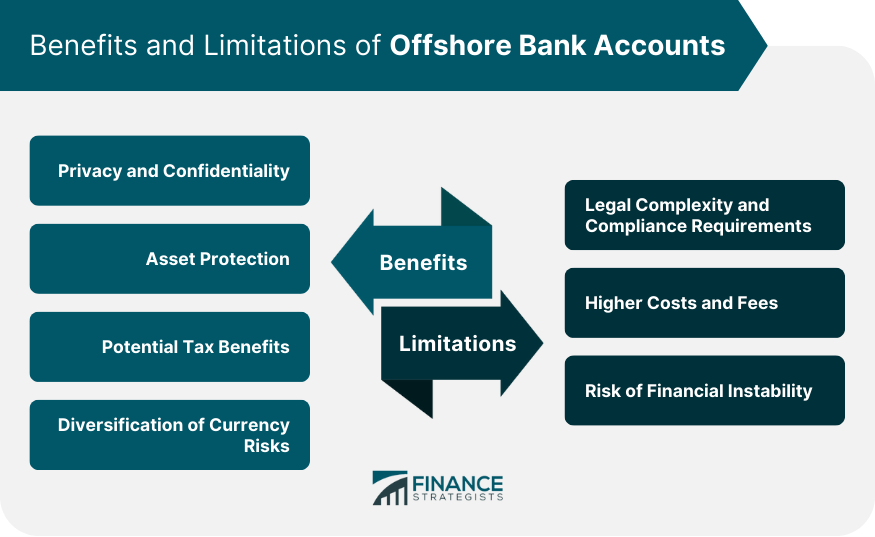How Offshore Company Formations Aid Wealth and Inheritance Planning
Debunking Offshore Company Formations: How They Run and What to Anticipate
Offshore company formations can seem facility and enigmatic. Offshore Company Formations. These entities, typically developed for tax advantages and privacy, run under unique lawful structures. Entrepreneurs may discover themselves steering with a maze of laws and compliance demands. Understanding the details is vital for success. What are the actual advantages? What are the prospective challenges? A closer evaluation exposes the subtleties that could affect decision-making substantially
Recognizing Offshore Companies: Kinds and definitions
Offshore companies are entities established in a territory beyond a person's or business's primary country of house, often for purposes associated to tax obligation optimization, property defense, or regulatory advantages. These business can take different kinds, including restricted responsibility business (LLCs), global business companies (IBCs), and offshore trusts. Each type serves certain features and charms to different requirements.
Restricted obligation business supply proprietors with defense from individual liability, while worldwide service companies are prominent for their versatility and minimal reporting requirements. Offshore trusts, on the other hand, are utilized primarily for estate planning and asset defense.
The selection of territory significantly influences the business's operations, as some areas provide a lot more favorable legal frameworks and privacy protections. Offshore Company Formations. Understanding the differences in between these types is vital for organizations and people thinking about offshore frameworks, as each choice lugs various effects for administration and conformity
The Benefits of Establishing an Offshore Firm
Developing an offshore firm can supply various advantages, specifically for those seeking to boost their monetary strategies and shield their possessions. One significant advantage is tax optimization; several jurisdictions supply positive tax prices or exemptions, enabling companies to retain even more profits. In addition, offshore firms can provide a layer of personal privacy, protecting the identities of owners and investors from public scrutiny.
Another benefit is asset defense. By putting properties in an overseas entity, people can guard their wide range from prospective legal insurance claims or political instability in their home nations. This framework likewise promotes international organization operations, allowing much easier accessibility to varied clients and worldwide markets.
The facility of an offshore company can improve reputation and status, appealing to customers that value worldwide organization practices. In general, these benefits make offshore company formations an appealing choice for people and services going for economic development and security.
Key Considerations Before Developing an Offshore Entity
Before developing an offshore entity, several vital aspects need to be examined. Lawful compliance demands, tax ramifications and benefits, as well as jurisdiction option, play a significant duty in the decision-making procedure. Recognizing these factors to consider can aid services and individuals navigate the intricacies of overseas business formations successfully.

Legal Conformity Needs
When thinking about the development of an overseas entity, comprehending lawful conformity requirements is crucial to ensure adherence to both neighborhood and international legislations. Possible entrepreneur need to acquaint themselves with regulations governing business enrollment, reporting commitments, and functional standards in the chosen jurisdiction. This consists of validating the lawful requirements for directors and shareholders, along with guaranteeing compliance with anti-money laundering (AML) and know-your-customer (KYC) policies. Furthermore, organizations should remain familiar with any type of licensing demands particular to their market. Engaging local legal and financial experts can offer beneficial understandings, making sure that all needed documents is prepared and sent properly. Eventually, complete understanding of legal compliance helps mitigate threats and cultivates a lasting offshore operation.
Tax Effects and Advantages
Many organization proprietors think about the tax effects and advantages of creating an offshore entity as an important consider their decision-making process. Offshore firms can use significant tax obligation advantages, such as decreased company tax obligation rates, exception from specific local tax obligations, and the ability to postpone tax obligations on foreign revenue. These benefits can lead to boosted success and capital, making offshore frameworks appealing for worldwide business procedures. Additionally, the possibility for tax obligation treaties may further reduce tax responsibilities. Nonetheless, it is crucial for entrepreneur to understand the complexities involved, consisting of compliance with both regional and worldwide tax obligation laws. Engaging with tax specialists is a good idea to browse these intricacies successfully and assure suitable tax planning approaches.
Jurisdiction Selection Aspects
What variables should one consider when selecting a jurisdiction for offshore business development? Trick considerations include tax effectiveness, regulative setting, and political security. Territories with favorable tax programs can substantially influence profitability. The regulatory landscape ought to use versatility and simplicity of conformity, permitting reliable organization procedures. Political security is essential, as it assures the safety and security of properties and connection of procedures. In addition, the reputation of the jurisdiction can affect client trust and company relationships. Ease of access to financial solutions and the accessibility of specialist assistance solutions are additionally important. Comprehending local laws pertaining to ownership, privacy, and coverage needs is crucial to identify that the overseas entity lines up with the company owner's objectives and legal commitments.
The Refine of Establishing an Offshore Firm
Establishing an overseas company includes a series of calculated actions that need mindful planning and conformity with international laws. At first, a specific need to choose a suitable territory that straightens with their company purposes and offers positive tax obligation advantages. Complying with territory option, the next step is to select a distinct business name and prepare the essential documentation, including short articles of incorporation and investor arrangements.
As soon as the documentation prepares, it has to be submitted to the appropriate authorities in addition to the needed fees. After approval, the business will receive a certification of unification, formally establishing its lawful presence. The individual have to then open a company savings account to help with monetary purchases.
Finally, preserving an offshore company includes sticking to continuous conformity demands, such as yearly reporting and tax commitments, which vary by territory. Therefore, understanding each action is essential for a successful overseas business formation.
Legal and Regulatory Framework for Offshore Firms
While resource developing an offshore firm can use significant advantages, it is necessary to navigate via the complicated legal and governing framework that controls such entities. Each jurisdiction has its very own set of laws that determine everything from firm formation to taxes and compliance needs. These policies are made to stop illegal tasks, such as money laundering and tax obligation evasion, and frequently call for extensive documents and transparency.
Crucial element of this structure consist of the necessity of selecting neighborhood directors, preserving a registered workplace, and adhering to annual coverage obligations. Furthermore, several jurisdictions enforce details licensing requirements for sure business activities. Comprehending these lawful stipulations is vital for ensuring compliance and mitigating risks connected with charges or lawful disputes. Subsequently, engaging with lawyers that specialize in offshore business can help in steering via this elaborate landscape, eventually promoting a compliant and successful offshore service procedure.
Common False Impressions About Offshore Companies
Lots of people hold mistaken beliefs concerning overseas business, frequently relating them with tax obligation evasion and prohibited tasks. It is essential to recognize that these entities can run legitimately within a framework designed for legitimate organization techniques. Clearing up the legal standing of overseas companies can help resolve these myths and promote an extra precise understanding of their purpose.
Tax Obligation Evasion Misconceptions
Despite the growing appeal of offshore companies, false impressions regarding their use for tax obligation evasion continue. Numerous people erroneously think that establishing an overseas entity is exclusively a way to avoid tax obligations. However, offshore business are frequently made use of for genuine objectives, such as possession protection, global company development, and investment diversity. The understanding that all overseas tasks equate to illegal tax obligation evasion ignores the intricacies of global tax obligation guidelines and conformity requirements. Furthermore, the substantial majority of offshore territories have actually executed procedures to combat tax evasion, advertising openness and details exchange. This mischaracterization can deter legit organizations and investors from checking out the prospective advantages of overseas company formations while perpetuating an unfavorable preconception bordering these entities.
Lawful Standing Clarified
The lawful status of offshore firms is frequently misinterpreted, leading to a selection of false impressions. Several think these entities operate in a legal gray area, assuming they are dishonest or inherently unlawful. In truth, overseas business are legit services developed under the legislations of certain territories, created for different reasons, including asset protection and market expansion. Another usual misunderstanding is that offshore firms escape tax obligations completely; nevertheless, they are subject to the regulations and tax commitments of their home nations. Furthermore, some people think that overseas firms can be conveniently made use of for money laundering or unlawful activities. While abuse can happen, many jurisdictions enforce rigorous compliance and transparency regulations to alleviate such dangers, guaranteeing that overseas business operate within lawful structures.

Managing and Operating Your Offshore Business Properly
Effectively handling and running an overseas firm needs a calculated strategy that balances compliance with regional guidelines and the read the full info here search of business goals. Successful offshore administration includes recognizing the territory's tax obligation regulations, reporting needs, and functional regulations. Employing local professionals, such as accountants and legal advisors, can supply very useful understandings into passing through these complexities.
Furthermore, developing clear communication channels and operational procedures is important for preserving performance. Utilizing innovation for task management and collaboration can improve efficiency, while routine performance evaluates assurance placement with strategic objectives.
Keeping durable financial documents is crucial, as openness promotes trust with stakeholders and complies with global requirements. Finally, being versatile to modifications in legislation or market problems allows overseas companies to pivot properly, ensuring long-term sustainability and development. By sticking to these principles, entrepreneur can make the most of the advantages of their offshore endeavors while mitigating risks.
Regularly Asked Questions
Just how much Does It Price to Preserve an Offshore Firm Yearly?
The expense to maintain an offshore firm annually varies substantially, usually varying from $1,000 to $5,000, depending on jurisdiction, solutions called for, and compliance responsibilities. It is vital to think about extra costs for specific demands.
Can I Open Up a Financial Institution Account for My Offshore Company From Another Location?
Opening up a financial institution account for an offshore company remotely is normally feasible. Needs might differ by jurisdiction, frequently requiring documents and confirmation procedures, which can make complex the remote application experience for people.
Exist Details Nations Known for Easier Offshore Company Formations?
Specific countries, such as Belize, Seychelles, and the British Virgin Islands, are renowned for their streamlined processes and favorable laws concerning offshore firm developments, drawing in entrepreneurs looking for performance and privacy in company operations.
What Sorts of Services Are Finest Suited for Offshore Firms?
Specific companies, such as consultancy, shopping, and financial investment firms, commonly profit from overseas business because click to read more of tax obligation benefits, privacy, and regulatory adaptability - Offshore Company Formations. These entities usually thrive in territories that promote desirable company settings
How Can I Make Certain Compliance With Neighborhood Regulations When Running Offshore?
To guarantee compliance with neighborhood laws when running offshore, it is important to involve lawful professionals, perform comprehensive study on jurisdiction guidelines, and keep transparent monetary documents, thereby lessening threats related to non-compliance.
